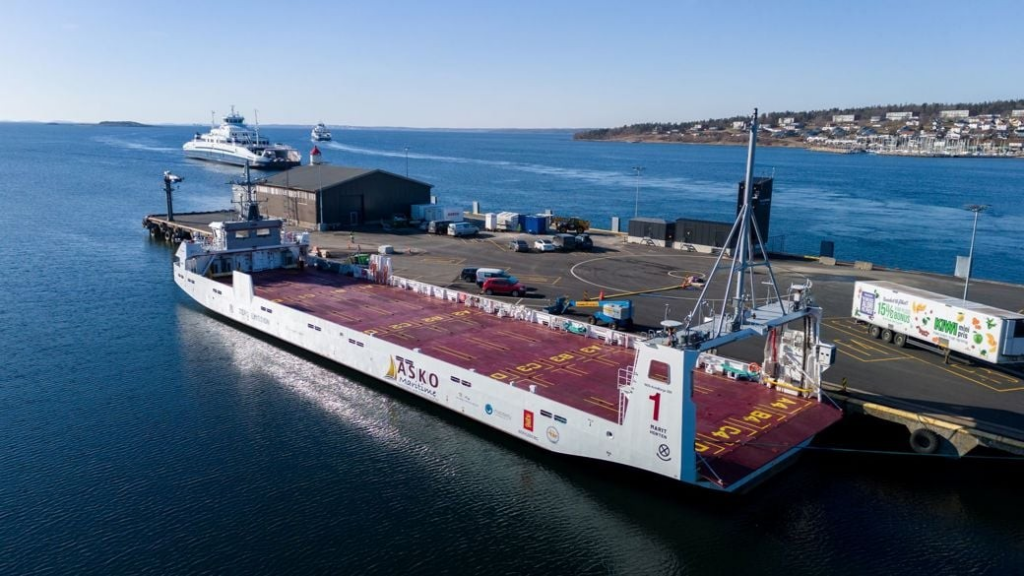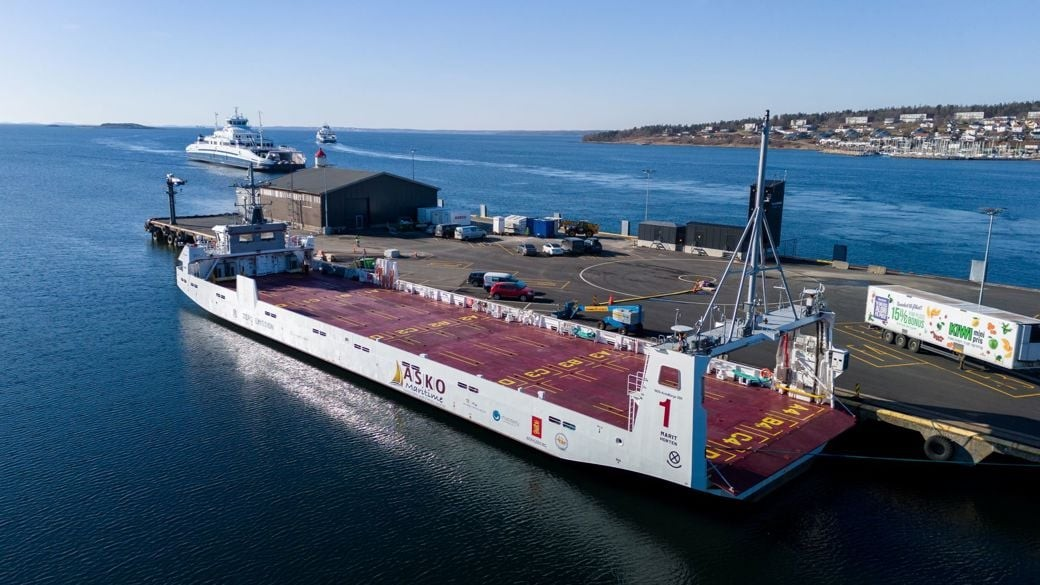
A zero-emission, autonomous barge in operation across the Oslo Fjord, is to begin a new connectivity trial using Eutelsat OneWeb’s low earth orbit (LEO) satellite internet service for real-time data transfer, ship-to-shore communication, and remote and autonomous vessel control.
The collaborative project, run by Kongsberg Maritime with the help of Norwegian telecommunications provider Telenor Maritime, will see the electric barge, owned and operated by grocery distributor ASKO, equipped for the trial with Eutelsat OneWeb’s latest Kymeta Peregrine u8 flat panel antenna system.
The ASKO barge, which is battery-powered, is one of a pair delivered in 2022. They have been operating extensive trials since then, transporting up to 16 trailers of cargo on each journey across the Oslo Fjord.
As it is reported by Kongsberg Maritime, this operation reduces road travel by two million kilometres and cuts carbon emissions by 5000 tons annually.
During the latest trials, the barge will be remotely controlled from a Remote Operations Centre (ROC), located in the Kongsberg Maritime facility in Horten. The ROC is operated by Massterley, a Kongsberg Maritime and Wilhelmsen joint venture company.
“Seamless connectivity remains one of the key challenges for remote and autonomous operations, particularly in the open oceans. Overcoming the challenges of global connectivity and available bandwidth will unlock great potential for the deployment of such technologies in future,” said Pål André Eriksen, senior vice president, remote & autonomous solutions, at Kongsberg Maritime.
“We’re grateful to ASKO for allowing us to install OneWeb’s latest antenna technology on one of their vessels, which will provide a realistic operating environment to comprehensively demonstrate the low latency, high throughput capabilities of Eutelsat OneWeb’s low Earth orbit satellite service,” he added.
Both of the ASKO vessels, also known as sea drones, have a permanent bridge for manual operation, and can also be controlled from the ROC in Horten.
However, Kongsberg Maritime says that once the autonomous concept is proven, the bridge will be omitted in future builds.



